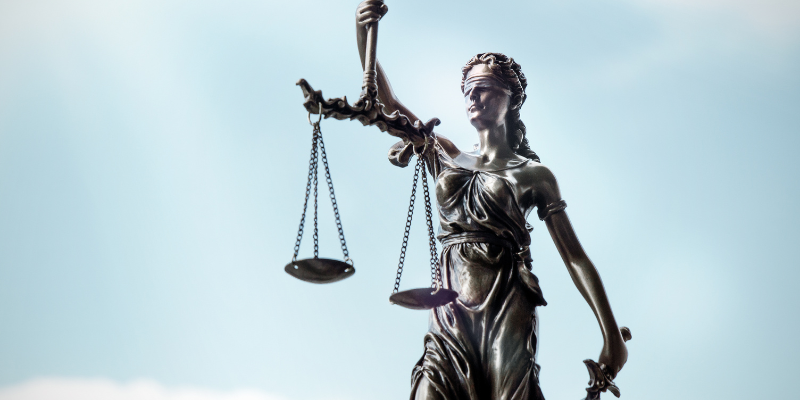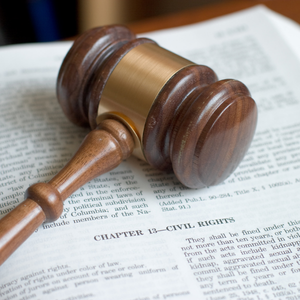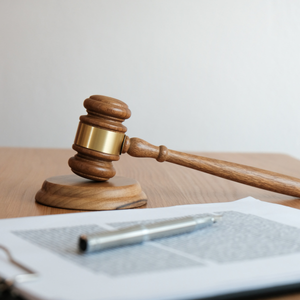
Historical Context of Squatter’s Rights Laws
Squatters rights politically referred to as adverse possesion, has long existed in legal property frameworks which is especially relevant to the state of Virginia. Such laws existed during a period in time when land was abundant, and the establishment of boundaries was necessary for civilized settlement.
In Virginia, squatters rights came about as a result of common law inherited from the English legal system without which there would be no incentive for land cultivation. Such policies are designed to allow a person whose land is lying fallow after a prolonged period of no activity to assume claim over the land, in case the claim was made for 15 years or less in the state of Virginia.
The individual has a primary claim, and the state has a claim over the land, though in recent times, squatters’ rights have changed in relation to societal frameworks and the condition of the economy. Any land is claimed during the period of intense land cultivation, though communal property is claimed to lessen the congestion of the state.
Having this in mind, O'Neill Home Buyers emphasizes the importance of understanding how the real estate dimension of Virginia is impacted and shaped by the legal history pertaining to adverse possession and squatter’s rights.
Exploring Adverse Possession and Its Relation to Squatting
An integral part of squatters’ rights in Virginia revolves around adverse possession which in law is defined as possessing property in certain conditions. Virginia law of adverse possession permits squatters to claim ownership of property after occupying it for 15 years continuously and openly without the consent of the owner.
Such possession must be continuous, exclusive and hostile which means that it is done without the consent of the owner in a manner that is possessory. The act of squatting is, in essence, the act of occupying a space irrespective of the legal permission.
The act of squatting neither confers nor bestows any ownership to property rights but is sometimes misconstrued with adverse possession if the squatters fulfill the conditions after a period of time. The need to know these possession laws in Virginia rests on the shoulders of real estate agents and owners to avoid claims from unpermitted occupants.
Adverse possession is only a part of the also complex claim of squatting which Virginia’s legal structure permits in the real estate sector. Such knowledge is useful in legal controversies to maximize efficient claim settlement while, in turn, protecting property rights. For homeowners seeking a simpler solution, you can sell your home for cash in Virginia Beach or nearby cities—fast, hassle-free, and without costly delays.
Common Misconceptions About Squatter’s Rights

A lot of people have different ideas about squatters’ rights in Virginia, often equating them with either tenant rights or assuming that squatters’ rights are nothing more than outright trespassing. There are people who, much to our chagrin, believe that squatters can occupy a property and claim ownership almost immediately by virtue of adverse possession.
The law in Virginia requires squatters to fulfill specific legal obligations for a period of time, which is generally 15 years, of unbroken and unconsented occupancy , to possibly become the legal owner. Another common fallacy is that mere possession of a property, regardless of authorization, entitles the squatter to some legal privileges; this, however, is untrue, as a property owner can remove squatters through legally recognized processes.
In addition, a lot of people believe that the act of squatting is ‘criminal’ in nature, which is not the case, as the act is illegal, intertwined with real estate law, which needs a more in-depth understanding of how possession is claimed by adverse possession in Virginia. There are also a lot of misconceptions about the fact that payment of some property taxes or utility bills by squatters strengthens their claim; while these actions, under a given set of criteria, may assist in establishing possession, such actions by themselves do not entitle a person to squatters’ rights.
All of these factors are essential for property holders and potential claimants to gain a more sophisticated understanding of the complexities that surround real estate and housing law in Virginia.
Legal Framework for Squatter’s Rights in Virginia
Virginia’s squatters’ rights are measured by a unique set of guidelines and legal statutes that encompass adverse possession provisions. A squatter in Virginia may claim a property by possession if the squatter occupies the property openly, continuously, and without permission for a span of fifteen years.
The occupation, exclusive and notorious enough to serve as notice to the bona fide owner of the property, is conducted during this period. The squatter is also required to assume ownership of the property and, as such, is also required to pay the corresponding applicable taxes and to maintain or even improve the condition of the land.
The laws also serve to maintain an equilibrium that both protects landowners while ensuring that adverse possessors are not easily denied ownership of a property. To realtors and homeowners in Virginia, this set of laws is highly pertinent as the criteria serve to determine the overlapping and unclear laws of simple trespassing justified by the enduring absence of a claim contrary to the occupant of the property.
Key Requirements for Claiming Squatter’s Rights in Virginia
In the state of Virginia, both proprietors of a parcel and those pursuing the process of adverse possession appreciate the relevant conditions necessary for claiming squatters’ rights. Adverse possession stipulates that a squatter can legally own a piece of property, if for a defined, uninterrupted period, a set of conditions specific to that property is satisfied.
In Virginia, a squatter must physically occupy a property for a period of 15 continuous years, and do so openly, notoriously and without the consent of the legal owner. This possession has to be exclusive, meaning that the squatter has to retain control without any sharing, and during this period, the original owner has to hold no dominion over the property.
Such an occupation must be hostile, which means the contrary. The payment of property taxes, however, may assist the squatter in showing some dominion over the land or the building and, therefore, responsibility and interest in the preservation of the land.
These aspects are critical to anyone dealing with property law in Virginia, be it in the context of defending land against occupation or through unduly possession attempt to claim it. For a quicker solution, you can sell your home for cash in Chesapeake or nearby cities—fast, simple, and without the usual complications.
How to Identify a Squatter in Your Property
Recognize the specific signs of squatters and what local real estate laws call squatters rights in Virginia to determine the particular identity of a squatter. A squatter lives in a home, uninvited, and unlicensed, and having no lease permission, as well as a proverbial free rider and comes to hold no contracts, and usually, unguarded or deserted locations.
Signs of squatters include having and or removing physical property for a prolonged period of time, iv dwelling aka the possession and use of personal effects, the use and alteration of the premises, and utility services. Its in Virginia where there are squatters rights no boundary laws but its in the law that there must be a differentiation made between a trespasser and a squatter.
A squatter is not an a priori occupant but in holding the position of ‘willing to be a paying customer’, lacking the basic ability to. Documenting and protecting the detail is the sole the responsibility of the property owner. Having knowledge above all else serves as a tier of blockage to any and all rights a property owner holds to an estate or real estate in Virginia is still complex.
Steps to Evict a Squatter Legally in Virginia
Displacing a squatter in Virginia entails a series of real estate and housing procedures. The first step of the process is ownership verification and collecting the deed or the title.
Once ownership is determined, the next step is a notice to quit. This is a formal written notice that a squatter has to comply with, giving leave to the space that is illegally occupied. In the event that a squatter still has reason not to comply, the next step for the property owners is to file the unlawful detainer action in the district court in their locality.
The next step of the process is the legal proceeding in the case, which is required to get the eviction order from the appropriate court. During the court session hearings, ownership proof, along with documents of previous efforts to remove the squatter, can add substantial weight to the case.
The moment the judgment is from the court in legal terms, then the next step is to work together with the local police for the removal of the squatters in an appropriate legal manner. Virginia landlord and tenant act at the state must be followed as is properly to the letter in order to complete the eviction properly. The squatters’ unauthorized belongings can not be touched, nor can the locks be positioned in a manner that can close the exit of the space illegally occupied.
The Role of Property Owners in Preventing Unlawful Occupation
Property owners have a very important function of keeping squatters at bay as well as protecting their real estate investments from unlawful occupation. In the case of Virginia, knowing the squatters rights is necessary for owners in order to further shield their property.
Scheduled routine visits to the property as well as physically maintaining the property serve as vital deterrence mechanisms for unauthorized occupancy. By keeping the premises in good condition, property owners can avoid the image of abandonment which is likely to draw squatters.
Property owners should integrate discussions around neighborhood crime-watch programs, as well as motivating proactive reporting of any weird behaviors, and surveillance at the fences of their property. Use of physical barriers, alarms, and even video, as well as surveillance technology for electronic and real-time systems of monitoring, should be regarded as basic deterrents to squatting.
In addition, property owners should be aware of the local laws of the jurisdiction in which they have possession of their property for practitioners of adverse possession. Property owners should seek practical and rapid methods for practitioners of unlawful direct possession and unlawful blockading of property fences and borders. Property owners should have comprehensive knowledge of how to evict tenants. Property owners need to be in touch with a lawyer with advanced knowledge of the legal system of the country in order to have the squatters removed as quickly as possible from the land. The legal rights of the property have to be observed closely.
Legal Consequences of Ignoring Squatter Claims

In Virginia, property owners who ignore squatter claims face adverse possession legal claims. A squatter can lay such a claim if a property is occupied and claimed openly for fifteen years.
Property owners, who choose to ignore such claims, do so at the risk, and, in this case, in the case of losing property in the claim, do so at the potential penniless risk. In addition, legal settlements with such people often do involve drawn-out legal processes. In such a case, losing pennies can seem like a lot in the drawn-out processes involving money.
Not differentiating squatters from property owners, is a big mistake. Losing the claim and having to pay ie. forced settlements is an outcome nobody dreams of. Moreover, unrest in squatter matters can, in case such claims are justified, move on to rental claims loss and the property getting damaged.
Full and complete real estate interest measures are the only conclusion to such cases, where property owners are on the other side of such cases. Virginia is a prime example of such an approach.
How Local Authorities Handle Squatter Situations
In Virginia, the balancing act in handling squatters takes on balancing property rights and legal action to resolve the issue satisfactorily. By the time a property owner notices the existence of squatters on their lot, the first course of action is to call the police.
However, police action can only take place if there is sufficient proof that a crime has actually been committed, something that has proven to be extremely difficult during the litigation process, due to the trust and real estate claims in Virginia. The local government recommends that property owners serve squatters, or initiate civil eviction processes in court.
Being served an unlawful detainer action showcases the manner in which squatters are tackled. The court’s principal function is to ascertain whether the squatters are in possession of the property in question for a contested period of time; hence, the court’s process is to decide the period of possession claims.
In a number of attempts, local governments have proven their attempts to mediate squatters by offering housing assistance. Their intentions have proven to block all attempts to take squatters by maintaining legal procedures to follow against squatters.
Case Studies on Successful Eviction of Squatters in Virginia
Virginia has several case studies demonstrating successful evictions of squatters as part of real estate and housing law. One of the more interesting instances had a property owner in Richmond, a part of Virginia, become aware of squatters taking refuge in one of her rental homes, which had not been occupied in a while.
Having hired a lawyer, the owner of the property was able to quickly initiate unlawful eviction proceedings by filing an unlawful detainer action, which is one of the steps in Virginia real estate. In-house, an experienced lawyer had managed to keep the owner from having to sink money, spirit, and time into claims that were false, litigation which were false, and proving her property’s controlled domain.
A different case from Norfolk illustrated how effective communication with law enforcement and compliance to the law can hasten the outcome. Real Law fueling the success of these scenarios in decision was empowered to court conclusions compliance and eviction compliance, and law to work compliance, collaborative, and property owners.
These case studies show the understanding of squatters rights in Virginia’s housing laws communication and the focus of protecting the properties.
The Impact of Squatting on Property Values
The encroachments associated with squatting have the potential to greatly alter the value of the impacted properties located in Virginia. Such circumstances have become increasingly alarming to local residents, real estate developers, and even the communities themselves. The legal implications of such matters, quite often termed as squatting rights, can greatly deter prospective buyers; not to mention the legal tangles that can arise with adverse possession and, in turn, decrease the value of properties in question.
Properties occupied by squatters apparently face the severe risk of truancy and lack of appropriate maintenance; thus, only wooing further calamitous value as a market. Having squatters around can significantly shift the expected image of the property and consequently, the whole neighborhood. Having such a reputation can severely cut down the interested buyers and hence, lead to depreciation of the value of all the properties nearby.
Moreover, the intricacies of the legal proceedings in squatter cases can become a great economic pressure for the proprietors. The owners wanting to recover their properties may have to engage in quite undesirable and toxic litigations. When the property’s rights become ambiguous, lenders can become wary of disbursing mortgages for the collateral. It shrinks the possible activities in the market, thus suffagating the potential growth in the local real estate market.
These aforementioned factors portray squatting as an adverse possession in the real estate world. Stakeholders such as local residents and real estate developers face the reality of navigating this complex world of housing.
What is the Shortest Time for squatter’s Rights?
In Virginia, knowing squatters’ rights is important for landowners, as well as people staying on a property ‘illegally’. The shortest duration for obtaining squatters’ rights, or adverse possession, in Virginia is 15 years.
A squatter must occupy a property for at least 15 years in order to claim legal ownership. During these years, a squatter must occupy the property ‘openly’ and ‘without’ permission. The squatter must assert ownership over the property in order to claim, maintain, and pay taxes on the property, which is essential.
Real estate business men and property owners are encouraged to familiarize themselves with the regulations in order to avoid unwanted claims. Carefully monitoring property and promptly responding to unauthorized occupation can mitigate issues associated with squatters’ rights in Virginia.
These portions of real estate law assist in preserving property rights and minimizing potential conflicts.
How Long Does It Take to Get Squatter’s Rights in Virginia?
Every property owner in Virginia needs to understand squatters’ rights and the legal timeline which determines the duration required to acquire them. Adverse possession, or squatters’ rights, is the legal condition where an individual is said to occupy an unowned property for a period of 15 uninterrupted and open years.
This duration is preceded by a phase where the occupant is said to possess the land under unlicensed permission, and their occupancy is deemed hostile, actual, exclusive, and notorious. The occupant, in this case, is required to assume ownership of the property, and thus, maintain and pay the property tax for the entirety of the duration.
Every condition proves that the property in question is owned by the squatter. The period that is mandated to be uninterrupted for a possession to be deemed legal is said to commence from the moment the squatter takes possession under these conditions. The moment the duration of fifteen years is met, a legal claim can be filed in the courts of Virginia in an attempt to gain ownership of the property.
Regular property inspection can greatly mitigate the efforts required to litigate squatters. In an event where the owner of the land has failed to act to the unauthorized occupation, legal complications arise which can be claimed to be classed under adverse possession. Understanding the information above can assist both the squatter and the owner in streamlining their dealings with the housing and real estate laws of Virginia.
How to Become a Squatter in Virginia?

In Virginia, squatters’ rights as a legal concept is rooted in the theory of possession, or adverse possession. In legal terms, Virginia law considers a person a squatter, and thus giving squatters rights, if such a person has occupied a property without the legal owner’s consent for a certain period of time which in the case of Virginia is 15 years.
In order to defend such a claim, the squatter’s conduct must be evident, which in legal terms is described as open and notorious possession. Their possession must be in some way obvious to others as well as continuous and uninterrupted throughout the statutory period, exclusive in nature and shared with no other person, and hostile to the owner. Squatters, in most cases, should consider the occupancy as a form of possession, and should also consider making certain improvements and or tax payments to strengthen their claim.
Having a grasp of such elements of real estate can provide insight necessary to navigate the squatters’ rights in Virginia.
How Do I Get Someone Out of My House in Virginia?
No person seeking to remove an individual from their premises in Virginia will fully appreciate the steps involved till the issue of rights of squatters is analyzed. Virginia law poster of squatters will mean tenants to be potential encroachers till they are proven to be squatters.
They can be identified as more than trespassers if they are unauthorized tenants of the house. Conversely, if they are permitted to set foot inside the house devoid of a formal contract, they are still lawfully bound tenants in so long as Virginia law ascribes to them certain rights of a tenant.
This step is to set an unlawful detention action in the General District Court. With them is to be filed an eviction on the premise.
These actions of the law are self-evident in Virginia landlord-tenant law on evictions, especially when you’re trying to sell a house with tenants.
Without a court’s approval, no unilateral steps should be attempted to remove property from the house. Based on the situation, it is strongly recommended to hire a Virginia lawyer.
Equally important, understanding squatter’s rights and tenant’s law in Virginia will assist in protecting your property and solving disputes in an appropriate manner.
Dealing with squatter’s rights issues can make selling your home even more stressful. Do you need to sell your home? Sell quickly, avoid costly repairs, or prefer a hassle-free sale. O'Neill Home Buyers is here to help. We offer fair cash offers, handle all the details, and make the process seamless—even if you’re facing squatter’s rights complications. Ready to sell or have questions? Contact us at (757) 578-1214 for a no-obligation offer. Get started today!
Helpful Virginia Blog Articles
- Selling A Fixer-upper Home In Virginia Without Renovations
- Guide To Selling Your Virginia Home Without A Realtor
- Navigating The Sale Of Your Virginia Home Amid Divorce
- Effective Strategies For Selling A Foreclosure Home In Virginia
- Expert Tips For Navigating The Sale Of A Probate House In Virginia
- Understanding Squatters’ Rights In Virginia
- The Costs Involved In Selling A Home In Virginia
- Selling An Investment Property In Virginia
- Closing On A Home After An Appraisal In Virginia
- Steps To Remove Your Name From A Virginia Mortgage
- How Long Can Seller Stay in House After Closing in Virginia?
- Can You Sell A House With A Lien in Virginia

| SQUATTERS’ RIGHTS | HOSTILE POSSESSION | NOTORIOUS POSSESSION | SQUATTER’S RIGHTS | ADVERSELY POSSESSED | LANDLORDS |
| TENANTS | HOLDOVER TENANTS | LEGAL TITLE | INSURANCE AGENCY | INSURANCE AGENCIES | INSURANCE |
| INSURANCE COMPANY | EXCLUSIVE POSSESSION | LEGAL COUNSEL | GOOD FAITH | SOFTWARE | RENTAL PROPERTY |
| DISABILITIES | DISABILITY | LEGAL ADVICE | THE UNITED STATES | AMERICA | RISKS |
| PROPERTY MANAGEMENT SOFTWARE | FENCING | COMPANY | SHERIFF | QUIET TITLE | |
| LEGAL RIGHTS | LIGHTING | FREQUENTLY ASKED QUESTIONS | DEBRIS | CRIMINAL CHARGES | CONSTABLE |
| COMPLAINT | SECURITY CAMERAS | ARIZONA | ALABAMA | IN THE PROPERTY | PAY PROPERTY TAXES |
| AN ADVERSE POSSESSION | VIRGINIA ADVERSE POSSESSION | THE PROPERTY IS | NO TRESPASSING SIGNS | POSSESSION OF THE | THE PROPERTY AND |
| THE PROPERTY FOR | FOR ADVERSE POSSESSION | AND NOTORIOUS POSSESSION | TO EVICT SQUATTERS | PROPERTY FOR 15 | PROPERTY WITHOUT PERMISSION |
| PROPERTY FOR AT LEAST | POSSESSION OF THE PROPERTY | AN ADVERSE POSSESSION CLAIM | TO PAY PROPERTY TAXES | THE PROPERTY FOR 15 |
